Spring Floods on the Connecticut.
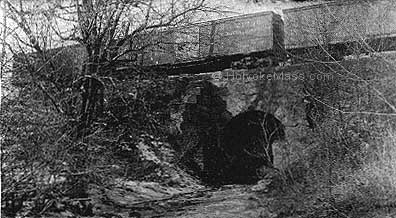
The Culvert at the Dingle
|
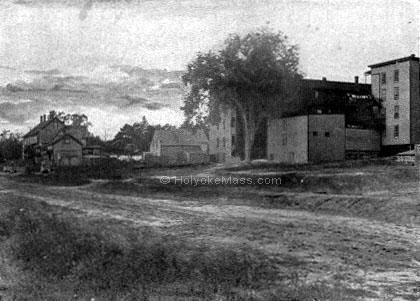
The Southern End of High Street
|
By the beginning of April the ice which, during the winter, has bridged the Connecticut river in its quieter parts, has been loosed from the shore by the sun’s increasing warmth, and, worn away by the water till it is weak and honeycombed, it crumbles and is swept down the stream. The upper portions of the river are often some weeks later in breaking up, but in mild years are sometimes clear by the end of March. When the snows in the New Hampshire hills, and the Green Mountains fairly begin to melt, and every little stream becomes a torrent and rushes down to the river to swell its current, the channel fills to the brim, and all the lowlands are flooded, and the brown meadows which lie higher have long streaks of water in every hollow. The water bears with it great quantities of brush, bits of board, wood left by choppers within its reach, and like rubbish, known to the natives under the comprehensive name of "flood-trash." Amongst this is a sprinkling of logs, some rotten or filled with knots, others smooth and sound—runaways from some upstream sawmill. Some are battered and slivered by collision with the ice, and many are run through with long bolts and spikes showing them to be a part of some washed away dam or pier. Often there will be heavy plank and great timbers from a destroyed bridge on the current, and many are the prizes to be had for the taking. The farmers living on the banks who possess boats, are not slow to take advantage of this circumstance. To some of them the river becomes their wood lot and their lumber yard. Those who have the best positions, take their pick from what comes down and do not waste any time over the poorer stuff. What passes them, no matter how apparently worthless, is thankfully received by the poorer classes in the cities below, who watch the stream and fish from it everything burnable which comes within their reach. Happy is the man among them who owns some old scow of a boat. Fortune smiles on him, and he is the envy of all his fellows.
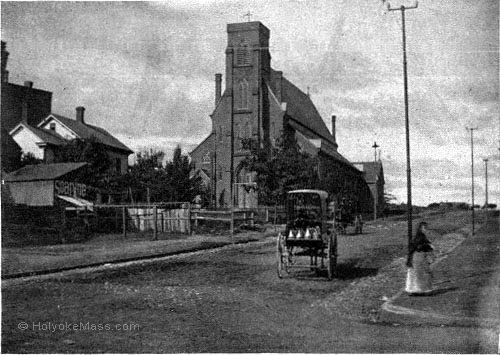
The Sacred Heart Catholic Church
|
Every farmer among the favored ones who live at the water’s edge has one or two spike poles, bought sometimes of the "logmen," when in the summer they escort their big "drive" of logs down the river; but oftener the poles are home-made. There are some twelve or fifteen feet in length. When making a saly in the boat, some carry a short spike pole five or six feet long, and others what they call "a dog," which looks something like an axe, except for the curious shape of the blade. If a man catches logs alone, he has attached to the stern of his boat by short chains one or two small iron instruments, also known as "dogs," which he drives into any logs he may wish to tow in. The end driven into the log turns down, and is in shape like a short spike. The opposite end bends upward, so that a sharp blow on it prys out the end buried in the wood. Once brought to the bank, the logs are fastened to stakes and convenient trees, and presently horses are attached and they are drawn up on dry land.
The rising water, which is very uncertain in its movements till the middle of May, is always the occasion of considerable uneasiness among those who live on low ground; for every year some cellars are flooded, and there is always the chance that the water will come up still higher and drive the people from their homes. Northampton, Springfield and Hartford are all partially overflowed at times. In the great flood of 1862 the old town of Hadley was half under water, and other towns and hamlets are not lacking in similar experiences.
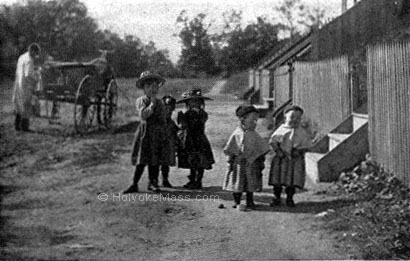
A Group on the Sidewalk |
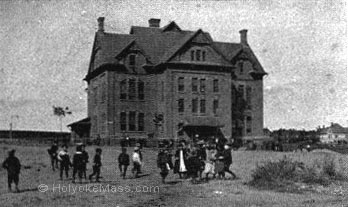
South Chestnut Street School |
© Laurel O’Donnell 1996 - 2006, all rights reserved
This document may be downloaded for personal non-commercial use only
and may not be reproduced or distributed without permission in any format.
This is an edited adaptation from the original publication.
|